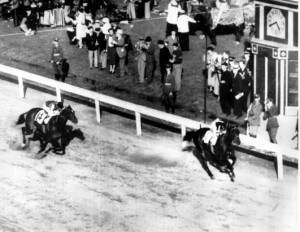 The Fifth Court continues to carefully police the boundaries of judicial admissions. In a family law case, it observed: “In her original motion to modify, Mother did not request the amount of child support be modified; rather she requested only that the order be modified to impose greater restrictions on Father’s access to [Child]. Therefore, Mother’s statement there had been a material and substantial change in circumstances was directed toward possession of and access to J.C.J., not the previously ordered child support. Accordingly, Mother did not make a ‘clear, deliberate, and unequivocal’ statement in her original motion to modify that there had been a material and substantial change in circumstances relating to Father’s financial condition or to the amount of child support Father had been ordered to pay.” In re JCJ, No. 05-14-01449-CV (Jan. 28, 2016) (mem. op.) (applying Horizon/CMS Healthcare Corp. v. Auld, 34 S.W.3d 887, 905 (Tex. 2000)).
The Fifth Court continues to carefully police the boundaries of judicial admissions. In a family law case, it observed: “In her original motion to modify, Mother did not request the amount of child support be modified; rather she requested only that the order be modified to impose greater restrictions on Father’s access to [Child]. Therefore, Mother’s statement there had been a material and substantial change in circumstances was directed toward possession of and access to J.C.J., not the previously ordered child support. Accordingly, Mother did not make a ‘clear, deliberate, and unequivocal’ statement in her original motion to modify that there had been a material and substantial change in circumstances relating to Father’s financial condition or to the amount of child support Father had been ordered to pay.” In re JCJ, No. 05-14-01449-CV (Jan. 28, 2016) (mem. op.) (applying Horizon/CMS Healthcare Corp. v. Auld, 34 S.W.3d 887, 905 (Tex. 2000)).
Monthly Archives: January 2016
 A high-profile fee dispute led to holdings that (1) an attorney can recover in quantum meruit in connection with an oral contingent fee agreement, notwithstanding the other legal problems with such agreements; (2) legally sufficient evidence of the attorney’s “valuable compensable global settlement services” supported the verdict on his quantum meruit theory; (3) claimed error on the narrow scope of a fiduciary duty instruction was not preserved without a specific objection to the scope issue; and (4) the trial court did not abuse its discretion in refusing a spoliation instruction, when evidence showed that the destruction of the relevant emails resulted from a routine upgrade process. Shamoun & Norman, LLP v. Hill, No. 05-13-01634-CV (Jan. 26, 2016). The Court rendered judgment on quantum meruit.
A high-profile fee dispute led to holdings that (1) an attorney can recover in quantum meruit in connection with an oral contingent fee agreement, notwithstanding the other legal problems with such agreements; (2) legally sufficient evidence of the attorney’s “valuable compensable global settlement services” supported the verdict on his quantum meruit theory; (3) claimed error on the narrow scope of a fiduciary duty instruction was not preserved without a specific objection to the scope issue; and (4) the trial court did not abuse its discretion in refusing a spoliation instruction, when evidence showed that the destruction of the relevant emails resulted from a routine upgrade process. Shamoun & Norman, LLP v. Hill, No. 05-13-01634-CV (Jan. 26, 2016). The Court rendered judgment on quantum meruit.
 It really can happen in the appeal of a temporary injunction — “If, while on appeal of the granting or denying of the temporary injunction, the trial court renders final judgment, the case on appeal becomes moot.” Santiago v. Bank of New York (Jan. 25, 2016) (mem. op.) (citing Isuani v. Manske-Sheffield Radiology Group, P.A., 802 S.W.2d 235, 236 (Tex. 1991) (per curiam)).
It really can happen in the appeal of a temporary injunction — “If, while on appeal of the granting or denying of the temporary injunction, the trial court renders final judgment, the case on appeal becomes moot.” Santiago v. Bank of New York (Jan. 25, 2016) (mem. op.) (citing Isuani v. Manske-Sheffield Radiology Group, P.A., 802 S.W.2d 235, 236 (Tex. 1991) (per curiam)).
Graman v. Graman involved a contentious dispute about the operation of a family restaurant business. On a fraud claim related to a loan, a witness testified to a conversation with the defendant: “We ended up talking about his loans his parents made to him and he told me that he never intended to pay his parents back at that point in time . . . He told me that he never intended on paying them back — and that’s why he never signed on what I recall him telling me was approximately $850,000. Finding that the first statement was not evidence of the defendant’s intent at the time of the loans, the Fifth Court then found: “As for the second statement, a fact finder could determine that statement showed Jason’s intent at the time of all the loans,” and reversed a no-evidence summary judgment on this claim. No. 05-14-01254-CV (Jan. 20, 2016) (mem. op.)
The issue in Tempay, Inc. v. Tanintco, Inc. was whether a notice of assignment, required to be sent to an account debtor as part of a factoring arrangement, satisfied section 9.406 of the UCC. That provision requires that the notice “reasonably identify the rights assigned,” and courts have divided about exactly what it requires, and whether summary judgment is appropriate. Here, in an analysis of broader interest about the appropriate standards for summary judgment, the Fifth Court found fact issues about the adequacy of the notice and whether it had been revoked. No. 05-15-00130-CV (Jan. 15, 2016) (mem. op.)
Highland Capital sued the Looper Reed law firm, who represented a former employee in litigation with Highland, alleging that the firm committed several torts against Highland during the course of that representation. The Fifth Court affirmed the dismissal of those claims on immunity grounds: “[T]he actions themselves—acquiring documents from a client that are the subject of litigation against the client, reviewing the documents, copying the documents, retaining custody of the documents, analyzing the documents, making  demands on the client’s behalf, advising a client to reject counter-demands, speaking about an opposing party in a negative light, advising a client on a course of action, and even threatening particular consequences such as disclosure of confidential information if demands are not met—are the kinds of actions that are part of the discharge of an attorney’s duties in representing a party in hard-fought litigation.” Highland Capital Management LP v. Looper Reed & McGraw, PC, No. 05-15-00055-CV (Jan. 14, 2016) (mem. op.) (applying Cantey Hanger, LLP v. Byrd, 467 S.W.3d 477, 481 (Tex. 2015)).
demands on the client’s behalf, advising a client to reject counter-demands, speaking about an opposing party in a negative light, advising a client on a course of action, and even threatening particular consequences such as disclosure of confidential information if demands are not met—are the kinds of actions that are part of the discharge of an attorney’s duties in representing a party in hard-fought litigation.” Highland Capital Management LP v. Looper Reed & McGraw, PC, No. 05-15-00055-CV (Jan. 14, 2016) (mem. op.) (applying Cantey Hanger, LLP v. Byrd, 467 S.W.3d 477, 481 (Tex. 2015)).
After a deadly 18-wheeler accident, the trucking company “decided to have the remains of the tractor and part of the trailer cut in half and crushed.” The district court allowed a spoliation instruction in the subsequent litigation, and the Fifth Court affirmed, noting: “the severity of the crash, [the CEO’s] years of experience in the industry, his previous dealings with obtaining police reports, and his awareness to preserve the [electronic control mechanism].” That said, particularly given the company’s protection by the workers’ compensation statutes, the death penalty sanctions entered by the district court did not have a “direct relationship” to that destruction. In re: J. H. Walker Inc., No. 05-14-01497-CV (Jan. 15, 2016) (mem. op.) This opinion presents a thoughtful application of the Texas Supreme Court’s recent analysis of spoliation in Brookshire Brothers, Ltd. v. Aldridge, 438 S.W.2d 9 (Tex. 2014).
 In recently dismissing an appeal, the Fifth Court reminded that as a “fictional legal person,” “a corporation may only appear through an attorney” in court proceedings, and summarized the cases on this point. Temple of the Supreme Mother Goddess Mahadevi Shakit of America, Corp. v. Wells Fargo Bank N.A., No. 05-15-01289-CV (Jan. 8, 2016) (mem. op.)
In recently dismissing an appeal, the Fifth Court reminded that as a “fictional legal person,” “a corporation may only appear through an attorney” in court proceedings, and summarized the cases on this point. Temple of the Supreme Mother Goddess Mahadevi Shakit of America, Corp. v. Wells Fargo Bank N.A., No. 05-15-01289-CV (Jan. 8, 2016) (mem. op.)
After the Texas Supreme Court’s reversed the Fifth Court’s analysis of a shareholder oppression claim in Ritchie v. Rupe, 443 S.W.3d 856 (Tex. 2014), it remanded for consideration of a parallel “informal fiduciary duty” claim. On remand, the Fifth Court rejected that claims, concluding: (1) standing alone, “evidence of domination and control” by the majority shareholder would not establish the necessary duty, and (2) the various familial and business relationships between the plaintiff and the defendants were not enough to establish a relationship of trust and confidence, notwithstanding the interaction of various family trusts over the years. Ritchie v. Rupe, No. 05-08-00615-CV (Jan. 12, 2016) (mem. op.)
Plaintiffs sought damages for losing a telecommunication contract with DISD. The defendants argued that, in the absence of any evidence of acts of fraudulent concealment, limitations should run from 2006 when Plaintiffs received their last payment. The Fifth Court agreed, rejecting Plaintiffs’ counterargument that limitations did not begin to run until the federal agency overseeing the contract had completed its investigation of the situation. Lazo Technologies v. Hewlett-Packard, No. 05-14-01060-CV (Jan. 7, 2016) (mem. op.)
After the second mediation of a wrongful death case failed to yield a settlement, the trial judge ordered the Chief Claims Officer (a resident of Alabama not otherwise involved in the case) of the defendant’s carrier (a nonparty) to appear at a show cause hearing. The Fifth Court granted a mandamus petition about that order: “[W]e conclude the judge lacked jurisdiction to order Thomas, a non-party who did not attend either mediation and who lives outside the trial court’s subpoena range, to appear and explain why ProAssurance should not be sanctioned.” In re ProAssurance Ins. Co., No. 05-15-01256-CV (Jan. 4, 2016) mem. op.)
 A business involved in the fuel purchases of a convenience store (right) obtained a $344,000 default judgment against an individual involved with the store’s operations. The Fifth Court set aside the judgment under the Craddock factors. As to the first factor (conscious indifference), the Court reminded of the importance of evidence rulings: “Although Quik-Way objected to the affidavits and other evidence filed in support of the motion for new trial, it did not secure any rulings on its objections; thus, we consider all the evidence in support of the motion for new trial” On the merits, the defendant “explained that her sister . . . handled the financial and personnel matters in the business and was the day manager of the store. After they were sued, [the sister] said she would handle the lawsuit. According to [the defendant], [the sister] was more educated and did not have a full-time outside job. [The defendant] said she relied on her sister and believed a lawyer had been hired and that an answer had been filed.” The sister filed a confirming affidavit. This showing sufficed: “A party’s belief that she had taken the appropriate steps to hire counsel is not consciously indifferent conduct, nor does it show [the defendant] knew she was being sued but did not care.” Khwaja v. Quik-Way Retail Associates II, Ltd., No. 05-14-01090-CV (Dec. 28, 2015) (mem. op.)
A business involved in the fuel purchases of a convenience store (right) obtained a $344,000 default judgment against an individual involved with the store’s operations. The Fifth Court set aside the judgment under the Craddock factors. As to the first factor (conscious indifference), the Court reminded of the importance of evidence rulings: “Although Quik-Way objected to the affidavits and other evidence filed in support of the motion for new trial, it did not secure any rulings on its objections; thus, we consider all the evidence in support of the motion for new trial” On the merits, the defendant “explained that her sister . . . handled the financial and personnel matters in the business and was the day manager of the store. After they were sued, [the sister] said she would handle the lawsuit. According to [the defendant], [the sister] was more educated and did not have a full-time outside job. [The defendant] said she relied on her sister and believed a lawyer had been hired and that an answer had been filed.” The sister filed a confirming affidavit. This showing sufficed: “A party’s belief that she had taken the appropriate steps to hire counsel is not consciously indifferent conduct, nor does it show [the defendant] knew she was being sued but did not care.” Khwaja v. Quik-Way Retail Associates II, Ltd., No. 05-14-01090-CV (Dec. 28, 2015) (mem. op.)
 “Branch” Warren, a noted professional bodybuilder, tore a leg muscle when he slipped on a rainy ramp outside a TGI Friday’s restaurant. He proffered expert testimony from an architect named Peter Combs who, after inspecting the ramp roughly three months after the accident, opined that it was unsafe. The Fifth Court affirmed summary judgment for the defendant: “[A] fatal problem with the Combs affidavit is that Combs did not say what the ramp’s condition was when Warren fell. Combs did not say that the ramp was probably as slippery on August 20 (when Warren fell) as it was on December 4 (when Combs inspected the ramp). He did not say that the lapse of time and exposure to the elements made the ramp more slippery, less slippery, or had no effect on the ramp’s slipperiness. In short, Combs’s affidavit addressed the ramp’s condition only on the day he examined it.” Warren v. Carlson Restaurants, No. 05-14-01232-CV (Dec. 30, 2015) (mem. op.)
“Branch” Warren, a noted professional bodybuilder, tore a leg muscle when he slipped on a rainy ramp outside a TGI Friday’s restaurant. He proffered expert testimony from an architect named Peter Combs who, after inspecting the ramp roughly three months after the accident, opined that it was unsafe. The Fifth Court affirmed summary judgment for the defendant: “[A] fatal problem with the Combs affidavit is that Combs did not say what the ramp’s condition was when Warren fell. Combs did not say that the ramp was probably as slippery on August 20 (when Warren fell) as it was on December 4 (when Combs inspected the ramp). He did not say that the lapse of time and exposure to the elements made the ramp more slippery, less slippery, or had no effect on the ramp’s slipperiness. In short, Combs’s affidavit addressed the ramp’s condition only on the day he examined it.” Warren v. Carlson Restaurants, No. 05-14-01232-CV (Dec. 30, 2015) (mem. op.)
 Appellant complained that the trial judge had further proceedings after a nonsuit. While also affirming as to whether a nonsuit occurred (finding that one did not happen), the Fifth Court reminded of the importance of timely objection: ” Generally, to preserve a complaint for appellate review, a party must timely present the complaint to the trial court and seek a ruling on the complaint . . . . In this case, not only did appellants not object when the case was reinstated, they affirmatively indicated that they did not object. As a result, this issue was not preserved for appellate review.” Gonzalez v. Gonzalez, No. 05-14-01361-CV (Dec. 29, 2015) (mem. op.)
Appellant complained that the trial judge had further proceedings after a nonsuit. While also affirming as to whether a nonsuit occurred (finding that one did not happen), the Fifth Court reminded of the importance of timely objection: ” Generally, to preserve a complaint for appellate review, a party must timely present the complaint to the trial court and seek a ruling on the complaint . . . . In this case, not only did appellants not object when the case was reinstated, they affirmatively indicated that they did not object. As a result, this issue was not preserved for appellate review.” Gonzalez v. Gonzalez, No. 05-14-01361-CV (Dec. 29, 2015) (mem. op.)
 In a companion to the high-profile libel case of Tatum v. Dallas Morning News, the Fifth Court addressed the “anti-SLAPP” dismissal of the Tatum’s suit against Julie Hersh, a book author who allegedly discussed the subject of the offending column with columnist Steve Blow. For purposes of the motion, the Court assumed that “Hersh admitted talking with Blow about suicide and secrecy in general, but . . . denied making the alleged statements that the Tatums based their claims on—statements about [their son’s] death and obituary that encouraged Blow to write critically about those facts.” Based on those facts, the Court reversed dismissal, finding that its holding in Pickens v. Cordia,
In a companion to the high-profile libel case of Tatum v. Dallas Morning News, the Fifth Court addressed the “anti-SLAPP” dismissal of the Tatum’s suit against Julie Hersh, a book author who allegedly discussed the subject of the offending column with columnist Steve Blow. For purposes of the motion, the Court assumed that “Hersh admitted talking with Blow about suicide and secrecy in general, but . . . denied making the alleged statements that the Tatums based their claims on—statements about [their son’s] death and obituary that encouraged Blow to write critically about those facts.” Based on those facts, the Court reversed dismissal, finding that its holding in Pickens v. Cordia, 433 S.W.3d 179 (Tex. App.–Dallas 2014, no pet.), controlled when “the defendant’s motion admits participating in a conversation generally but denies making the specific relevant statements in particular.” Tatum v. Hersh, No. 05-14-01318-CV (Dec. 30, 2015).
433 S.W.3d 179 (Tex. App.–Dallas 2014, no pet.), controlled when “the defendant’s motion admits participating in a conversation generally but denies making the specific relevant statements in particular.” Tatum v. Hersh, No. 05-14-01318-CV (Dec. 30, 2015).
 In a detailed analysis, the Fifth Court reversed a summary judgment for the Dallas Morning News and columnist Steve Blow as to this 2010 column in the case of Tatum v. Dallas Morning News, No. 05-14-01017-CV (Dec. 30, 2015). In a nutshell, the plaintiffs took issue with Blow’s suggestion that they were untruthful about the circumstances of their son’s suicide. The Court found genuine issues of material fact about whether the column was about the Tatums (it did not expressly name them); whether it was defamatory, substantially true, or privileged; whether it solely involved opinion; and whether Blow acted with malice. The News’s own coverage of the opinion appears here.
In a detailed analysis, the Fifth Court reversed a summary judgment for the Dallas Morning News and columnist Steve Blow as to this 2010 column in the case of Tatum v. Dallas Morning News, No. 05-14-01017-CV (Dec. 30, 2015). In a nutshell, the plaintiffs took issue with Blow’s suggestion that they were untruthful about the circumstances of their son’s suicide. The Court found genuine issues of material fact about whether the column was about the Tatums (it did not expressly name them); whether it was defamatory, substantially true, or privileged; whether it solely involved opinion; and whether Blow acted with malice. The News’s own coverage of the opinion appears here.